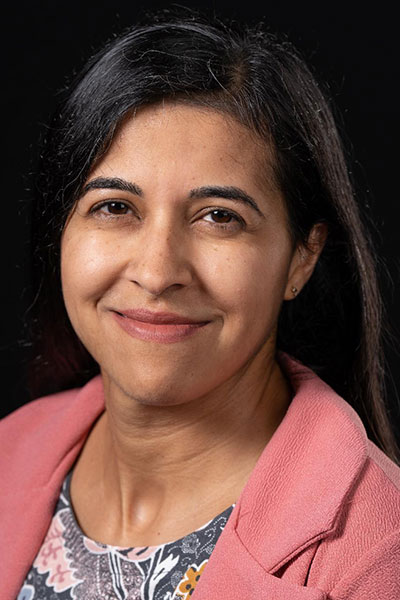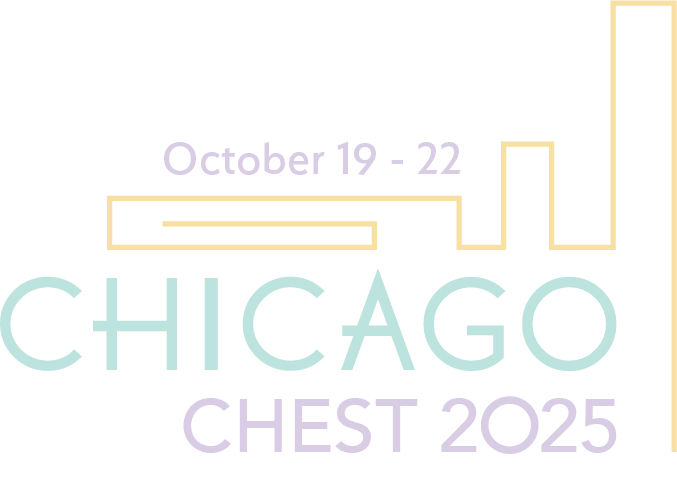Severe asthma affects an estimated 10% of all patients with asthma. It has significant morbidity, with higher hospital and emergency room admission rates than other kinds of asthma, and carries a disproportionate economical and emotional burden. Early diagnosis and treatment can provide crucial interventions in the progression of severe asthma from childhood to maturity, said Shahid Sheikh, MD, FCCP, Chair of the Airways Disease Curriculum Group for CHEST 2025.
“We know that about 70% of patients with asthma usually develop clinical symptoms by the age of 3 or 4 years,” he said. “So if we can focus on these kids earlier in life, we can not only decrease the morbidity in pediatric age groups but also lay the foundations for better control in their adult life.”
Experts will discuss how age and life events affect severe asthma, as well as solutions for a unified approach throughout a patient’s life, during the CHEST 2025 session Severe Asthma Across the Lifespan: Shared Challenges and Innovative Solutions at 11 am CT on Monday, October 20, in McCormick Place, Lakeside Center, Room 451A.
Dr. Sheikh, Professor of Clinical Pediatrics at The Ohio State University College of Medicine and a pulmonologist and allergist/immunologist at Nationwide Children’s Hospital, will chair the session and provide an overview of phenotypes and endotypes of severe asthma in children, including immune responses in young patients that are more likely to lead to severe asthma.
Esmeralda Morales, MD, Clinical Associate Professor of Pediatrics and Pulmonary Medicine at Stanford University, will pinpoint some of the specific severe asthma endotypes and phenotypes among pediatric patients and examine recent research results focusing on individualized therapies, such as biologics, that might allow for more aggressive treatments.
Megan Conroy, MD, MEd, FCCP, Assistant Clinical Professor at The Ohio State University Wexner Medical Center, will trace how these different endotypes and phenotypes manifest in adult patients and examine some of the shared and unique treatment options, with an emphasis on outpatient management for severe asthma.

Amik Sodhi, MBBS, FCCP, Associate Professor in the Division of Allergy, Pulmonary, and Critical Care Medicine at the University of Wisconsin School of Medicine and Public Health, will explore one of the areas less understood in the development of severe asthma and asthma in general—the impact of hormones and major life events marked by hormonal changes.
Dr. Sodhi pointed to changes in asthma—and severe asthma—incidence rates at several biological markers in women’s lives, such as menstruation, pregnancy, and menopause. This suggests a link between hormones and asthma, she said, but the challenge is identifying how and why. Dr. Sodhi will outline some of the key studies and basic science behind known and unknown connections.
“For example, we know that estrogen and some of its derivatives increase both type 2 and non-type 2 endotypes and phenotypes of asthma. And we know that androgens do the opposite—they help to suppress that inflammatory pathway,” Dr. Sodhi said. “So there are these links, and we need to figure out how to make this relevant to our day-to-day patient care.”
This information can be particularly relevant in the study and treatment of patients with severe asthma, which often has an exaggerated—and not necessarily linear—response to hormonal changes. The relationship between hormones and severe asthma can also be significant in treatment of patients undergoing various types of hormonal therapies, from contraception to cancer treatments or gender transitions.
“We don’t fully understand which specific hormone does what and how they impact the different asthma phenotypes—that’s the tricky part,” Dr. Sodhi said. “But in terms of research opportunities, this means there is an opportunity for more studies to define the link between hormones and asthma. Our end goal is to provide guidance to clinicians so they can be aware of these links and provide better care and say to their patients, ‘Here’s what we know and don’t know about hormones and asthma, and here is what it may do to your asthma.’”

Call for Topics Is Open
Feeling inspired by all the great sessions in Chicago? Help shape the curriculum for CHEST 2026, October 18 to 21 in Phoenix, by submitting topic ideas from areas you’re passionate about, topics affecting your practice, or new technologies you’d like to learn more about. The submission deadline is Tuesday, December 2, at 2 pm CT.


